
Rivamus 2.5mg Tablet
Manufacturer
Optimus Pharma Pvt Ltd
Salt Composition
Rivaroxaban (2.5mg)
Key Information
Short Description
Rivamus 2.5mg Tablet is a medicine known as an anticoagulant or blood thinner. It helps prevent and treat blood clots.
Dosage Form
Tablet
Introduction
Rivamus 2.5mg Tablet is commonly used in patients with irregular heart rhythm (atrial fibrillation) to prevent clot formation. It also reduces the risk of getting clots in people who have undergone knee or hip replacement surgeries. It may be taken with or without food. Take it at the same time each day for maximum benefits. You may need to take this medicine for many years even for life in some cases. Do not stop taking it or change the dose without guidance from your doctor.
Directions for Use
Take this medicine in the dose and duration as advised by your doctor. Swallow it as a whole. Do not chew, crush or break it. Rivamus 2.5mg Tablet may be taken with or without food but it is better to take it at a fixed time.
Safety Information
Side Effects
bleeding more easily than normal having nosebleeds or bruising
Alcohol Warning
Caution is advised when consuming alcohol with Rivamus 2.5mg Tablet. Please consult your doctor.
Breastfeeding Warning
Rivamus 2.5mg Tablet is probably unsafe to use during breastfeeding. Limited human data suggests that the drug may pass into the breastmilk and harm the baby.
Pregnancy Warning
Rivamus 2.5mg Tablet may be unsafe to use during pregnancy. Although there are limited studies in humans, animal studies have shown harmful effects on the developing baby. Your doctor will weigh the benefits and any potential risks before prescribing it to you.
How it works
Rivamus 2.5mg Tablet is a novel oral anticoagulant (NOAC). It works by stopping a clotting factor called factor Xa from working. This helps prevent the formation of blood clots in the body.
Quick Tips
take Rivamus 2.5mg Tablet at the same time every day take it at night with meals it interacts less with food or other medicines frequent dose changes are not required be careful while shaving, cutting fingernails or toenails, using sharp objects or engaging in contact sports
Related Medicines
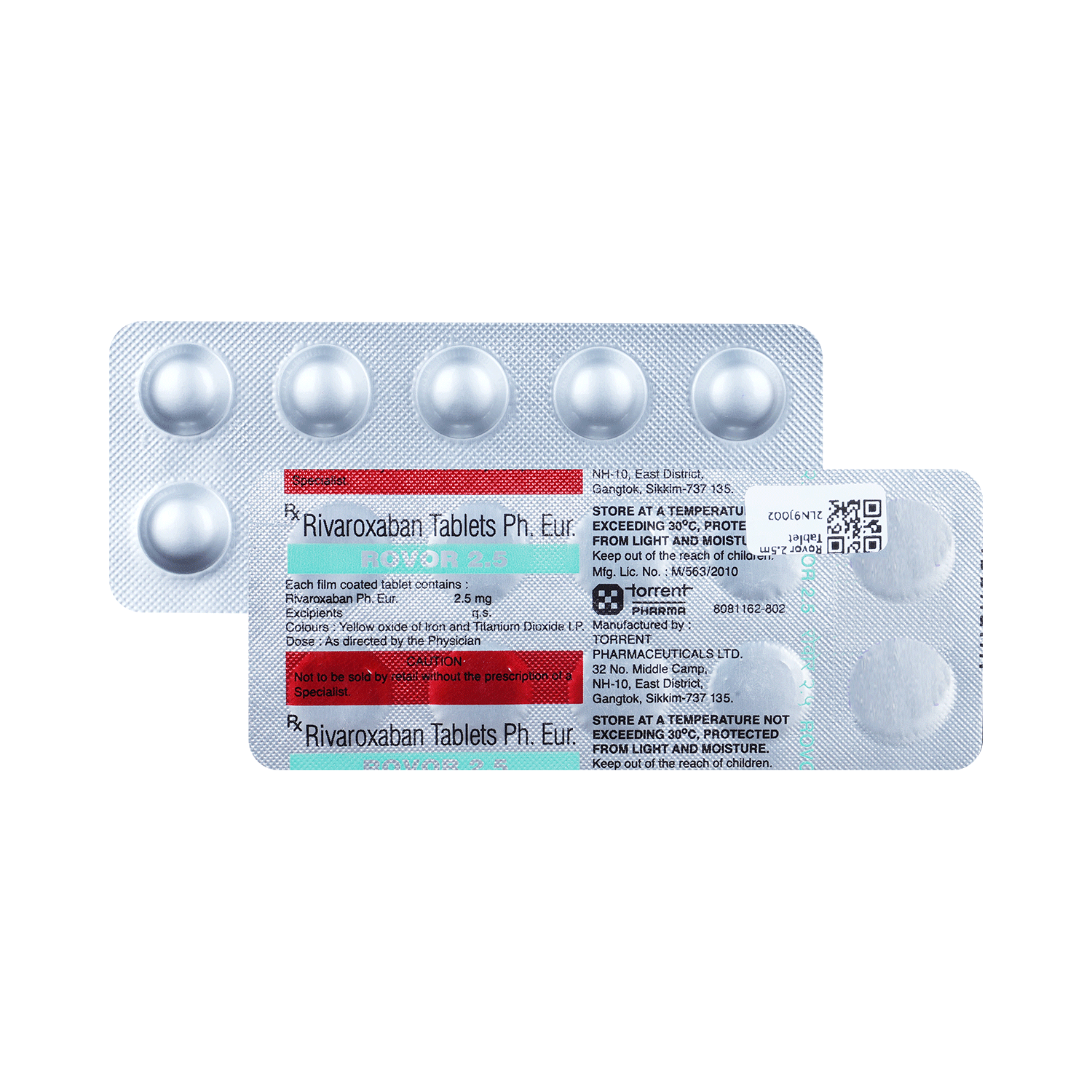
Rovor 2.5 Tablet
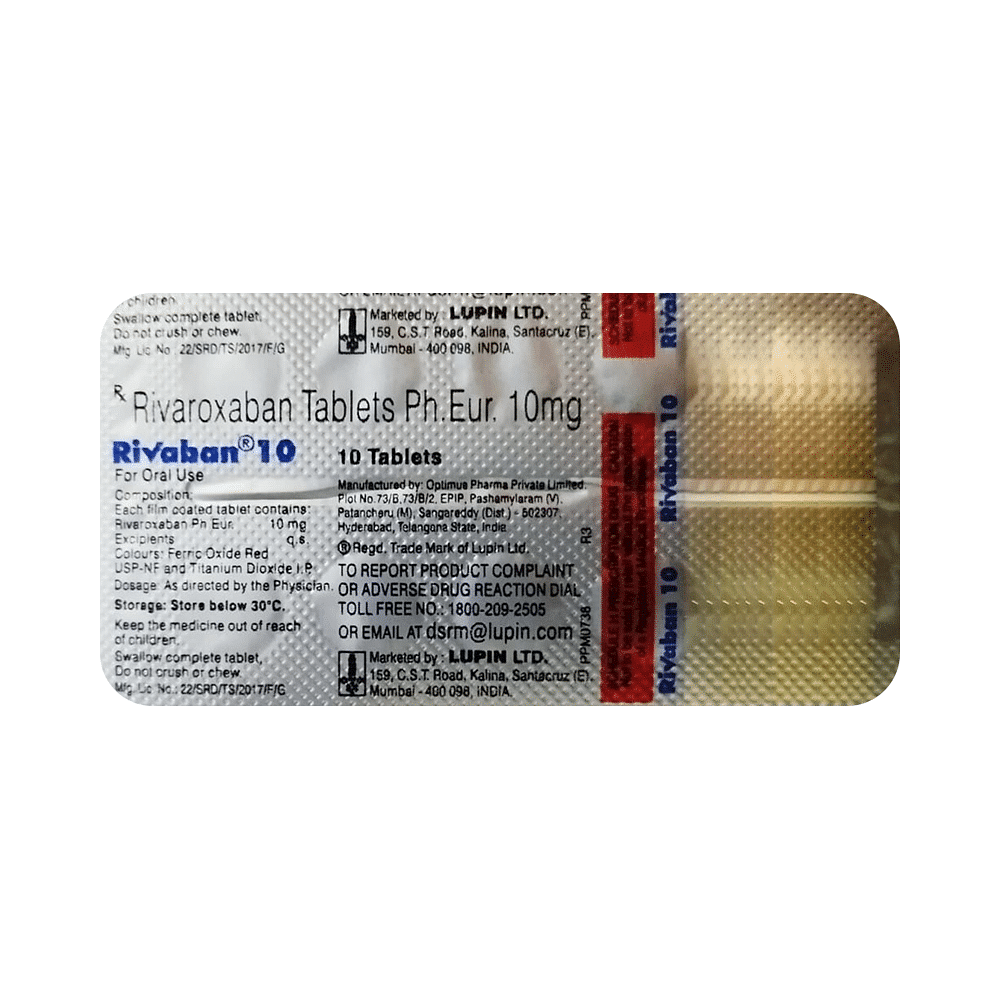
Rivaban 2.5mg Tablet

Ricosprin 2.5 Tablet
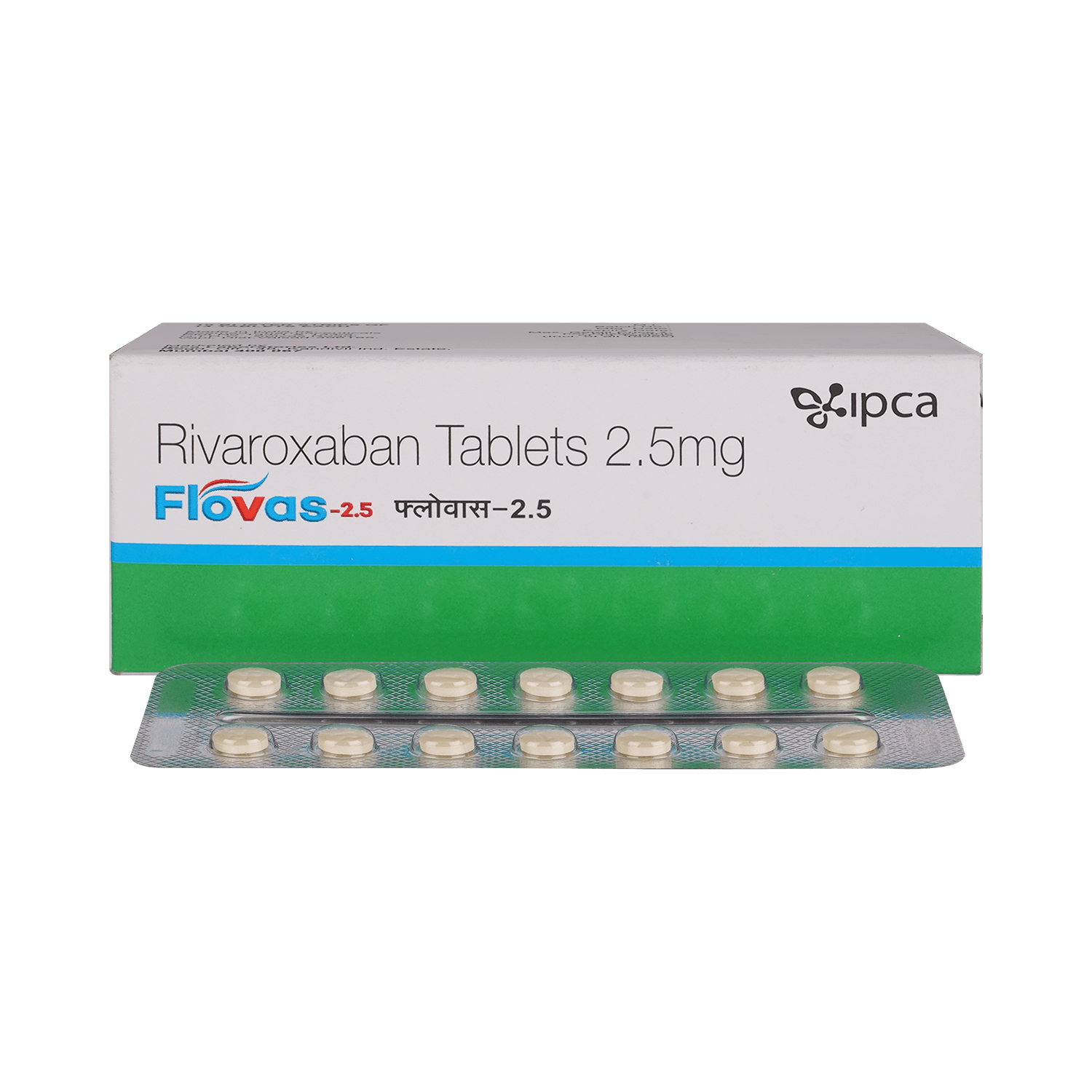
Flovas 2.5mg Tablet
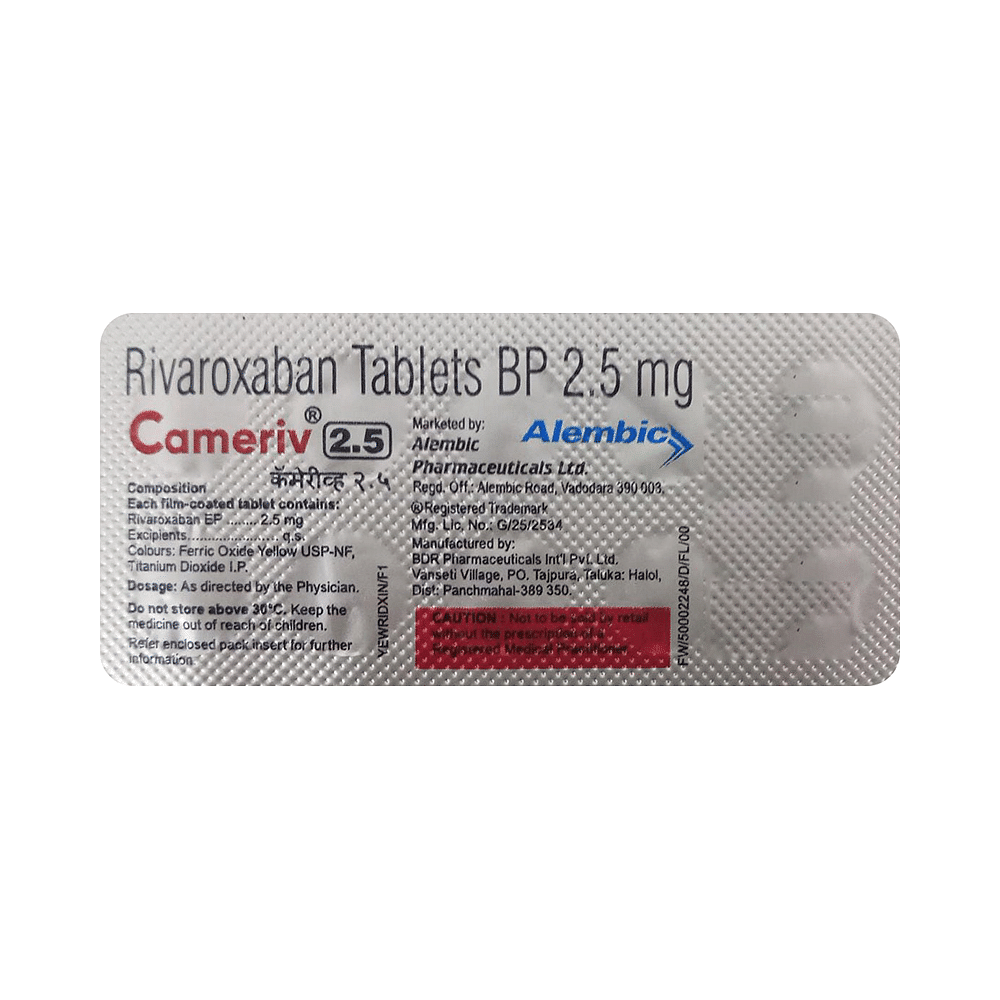
Cameriv 2.5 Tablet
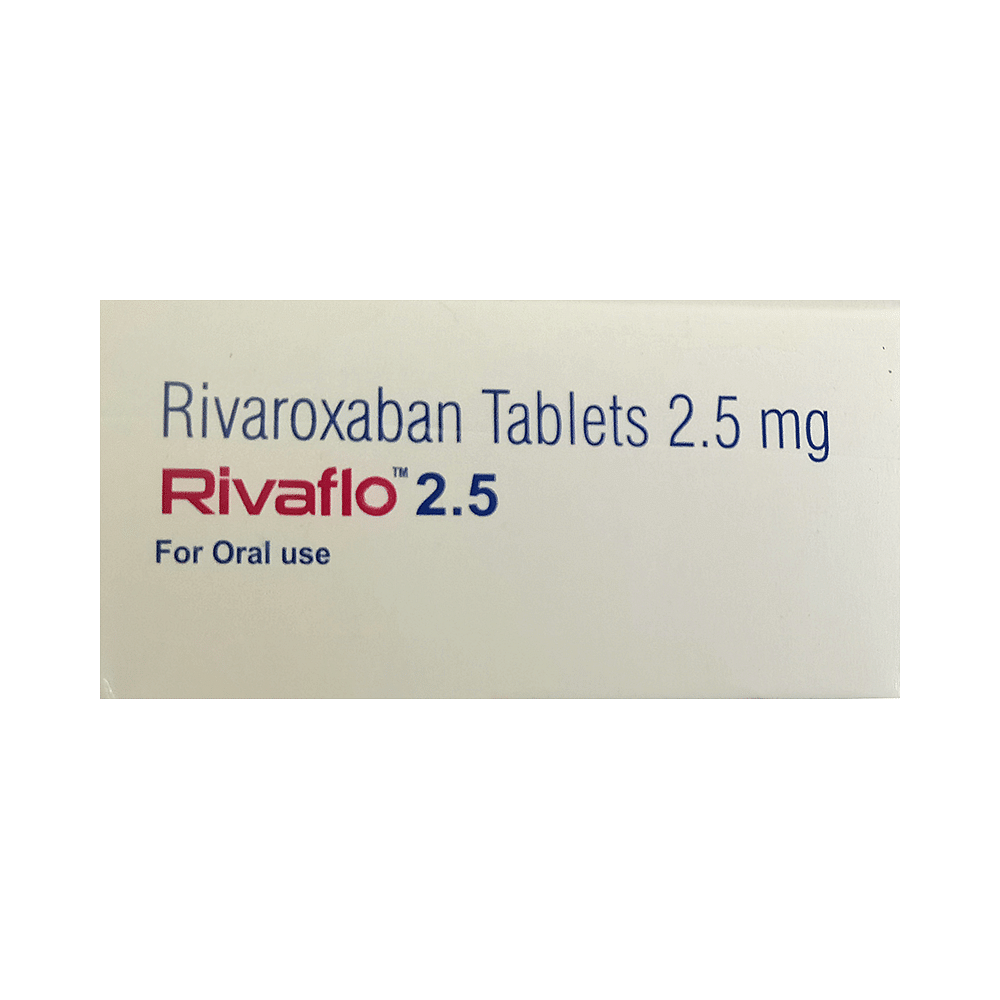
Rivaflo 2.5 Tablet

Ixarola 2.5mg Tablet

Rixant 2.5 Tablet

Rivarox V 2.5mg Tablet

Rivolas 2.5mg Tablet
Frequently asked questions
What are the potential side effects of Rivamus 2.5mg Tablet?
Common side effects of Rivamus 2.5mg Tablet may include prolonged or excessive bleeding, breathlessness, fatigue, pale skin, dizziness, headache, and unexplained swelling. In some cases, you may experience severe skin and allergic reactions, bruising, coughing up blood, bleeding from the skin or under the skin, and swelling and pain in the limbs. Rivamus 2.5mg Tablet may also increase bilirubin levels and decrease platelet count. Some individuals may experience fainting episodes, rapid heartbeat, and dry mouth. If you notice any side effects, consult your doctor immediately.
Is Rivamus 2.5mg Tablet a blood thinner?
Yes, Rivamus 2.5mg Tablet is a blood thinner that prevents blood clotting within blood vessels and recurrent blood clots in blood vessels. It may be prescribed to treat blood clots in the veins of the legs and lungs.
Is Rivamus 2.5mg Tablet dangerous?
Rivamus 2.5mg Tablet has several benefits, but it can increase the risk of bleeding, even with minor injuries, due to its ability to reduce blood clotting. In some cases, Rivamus 2.5mg Tablet may cause serious bleeding that requires urgent medical attention. This risk may be higher when taking Rivamus 2.5mg Tablet with other blood thinning medications. If you notice any bleeding, consult your doctor.
What foods should I avoid while taking blood thinners like Rivamus 2.5mg Tablet?
Avoid consuming grapefruit and grapefruit juice while taking Rivamus 2.5mg Tablet, as grapefruit contains compounds that can slow down the metabolism of the medication and increase the risk of bleeding. However, if you are taking a different blood thinner like warfarin, you should avoid foods that increase vitamin K activity or blood clotting, such as spinach, Brussels sprouts, mustard greens, broccoli, asparagus, and green tea. Consult your doctor for personalized dietary advice.


